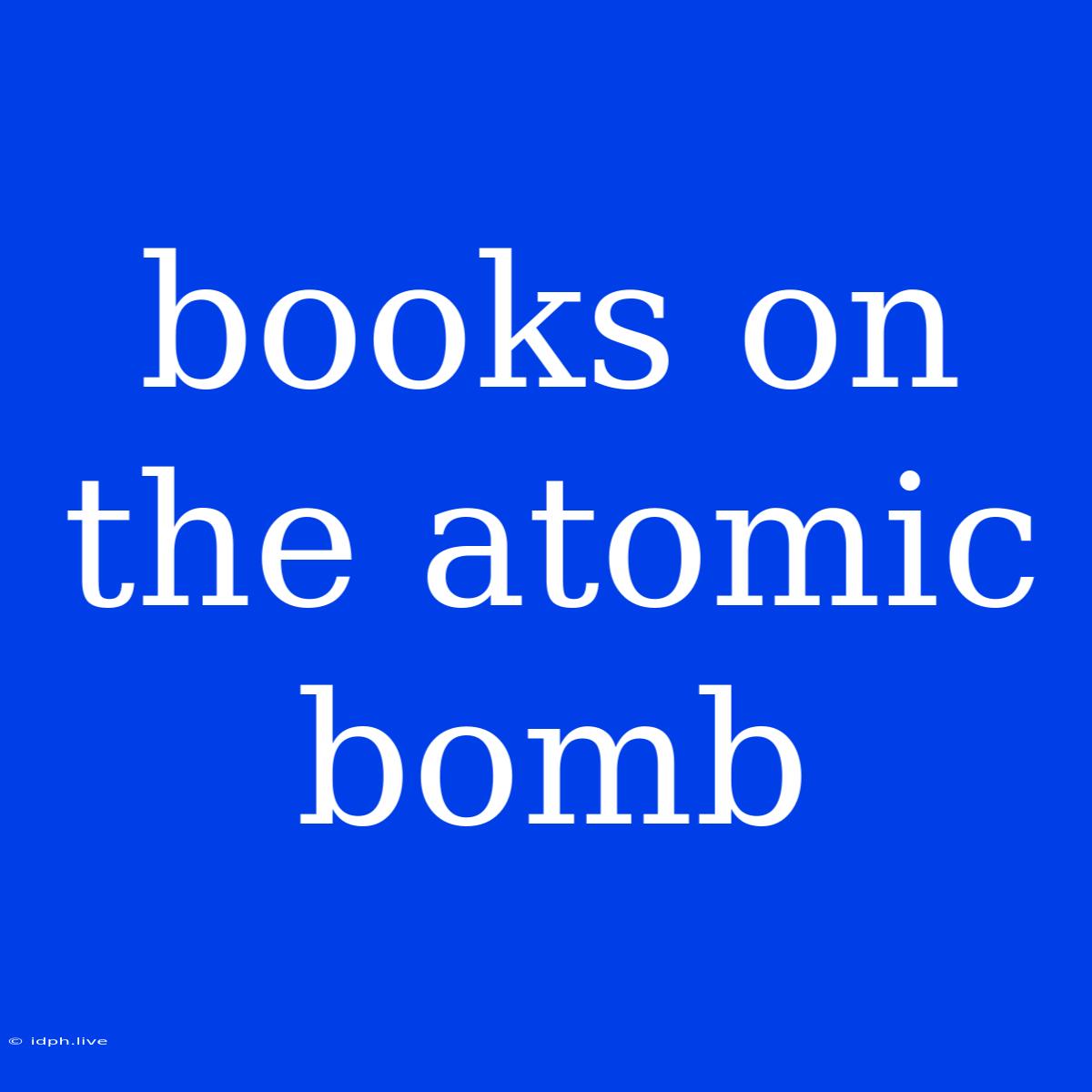A Look into the Atomic Bomb: Essential Reads for Understanding the "Ultimate Weapon"
The atomic bomb, a weapon of unparalleled destructive power, forever changed the course of history. Understanding its development, deployment, and enduring legacy is crucial for comprehending the 20th century and beyond. Luckily, a wealth of books delve into this complex subject, providing insightful perspectives on the scientific, political, and ethical dimensions of the atomic bomb. Here are some essential reads that will help you navigate this profound chapter in human history:
The Classic Accounts
- "The Making of the Atomic Bomb" by Richard Rhodes (1986): This Pulitzer Prize-winning masterpiece is considered the definitive account of the Manhattan Project. Rhodes meticulously chronicles the scientific and political forces that led to the creation of the atomic bomb, highlighting the key individuals involved and the ethical dilemmas they faced.
- "Hiroshima" by John Hersey (1946): This groundbreaking work offers a poignant and deeply humanizing perspective on the immediate aftermath of the atomic bombing of Hiroshima. Hersey’s vivid descriptions and powerful storytelling bring the devastating consequences of the bomb to life.
Exploring the Consequences
- "The Atomic Bomb" by Robert Jungk (1957): Jungk, a German journalist, explores the scientific, social, and political consequences of the atomic bomb. His book examines the impact of the bomb on global politics, the rise of the nuclear arms race, and the enduring anxieties about nuclear war.
- "The Age of Atomic Anxiety" by David Kaiser (2016): This book delves into the cultural and psychological effects of the atomic bomb. Kaiser explores how the threat of nuclear war shaped art, literature, and popular culture, shaping a pervasive sense of anxiety in the postwar era.
Beyond the Bomb
- "The Nuclear Age" by Spencer Weart (1988): This comprehensive work provides a broad historical overview of the nuclear age, from the discovery of radioactivity to the current state of nuclear weapons. Weart examines the scientific, political, and technological developments that shaped the nuclear landscape.
- "Command and Control" by Eric Schlosser (2013): This chilling and meticulously researched book explores the history of nuclear weapons accidents and near-disasters. Schlosser unveils the fragility of the systems designed to prevent nuclear war, highlighting the ever-present risks associated with these powerful weapons.
These are just a few of the many excellent books available that illuminate the history and legacy of the atomic bomb. Whether you are seeking a comprehensive overview, a detailed examination of a specific aspect, or a deeply personal account, these books will provide valuable insights into this complex and consequential chapter in human history.

